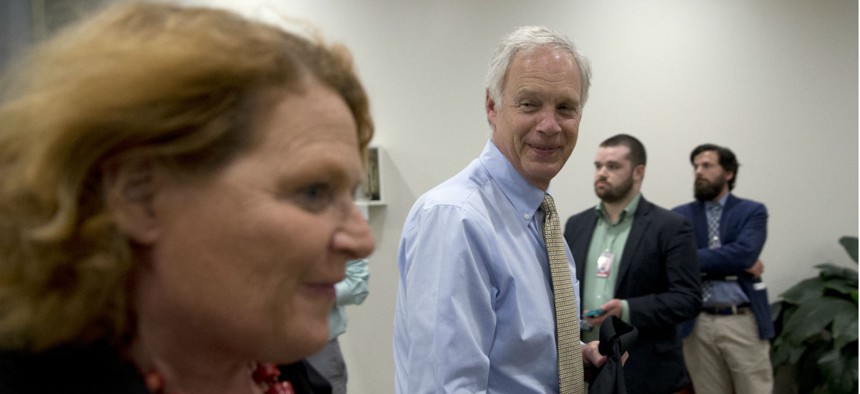Postal Reform Could Re-Emerge in the Lame Duck Congress
Dozens of lawmakers from both parties are preemptively fighting back.
Lawmakers are preparing to bring renewed attention to U.S. Postal Service reform in the lame-duck session of Congress, though in a challenge that will sound all too familiar to advocates for change, scores of members from both parties are already sounding the alarm about their concerns with current legislation.
A recent score from the Congressional Budget Office that found bipartisan, committee-cleared legislation would not negatively impact the federal debt have boosted the prospects for a vote on the measure in the final weeks of the 114th Congress, according to Senate aides. The 2016 Postal Reform Act, approved unanimously by the House Oversight and Government Reform Committee, is now the vehicle most likely to receive further action this year.
More than 50 members of the House and 27 senators are preemptively telling the authors of that bill -- including both Republican and Democratic leadership on the oversight committee -- to note their problems with the measure. In a letter spearheaded by Sens. Heidi Heitkamp, D-N.D., and Jerry Moran, R-Kan., the lawmakers said the bill as currently written does not provide enough protections to ensure a high standard of mail service. The lawmakers are dropping a previous demand to return delivery standards to those USPS used in 2012, a Democratic aide said, before it virtually eliminated overnight mail delivery and slowed the two-to-three day window.
The Postal Reform Act fully integrates postal retirees’ health care with Medicare, requires most employees enrolled in the Federal Employees Health Benefits Program to select a plan specific to USPS workers, phases out to-the-door delivery for business customers and increases postal rates, among other changes. It is a good compromise for making the agency more financially solvent, the aide said, but does not place a strong enough emphasis on service. The lawmakers signing onto the letter are looking to ensure service standards are at least not further degraded. They also want clearer, regionally specific performance targets, with more accountability to certify that USPS meets them.
The exact specifics of what the lawmakers would need to sign onto the bill are still up for negotiation, the aide said, but they would not vote for it in its current form.
Dave Kuntz, a spokesman for Sen. Jon Tester, D-Mont., who also signed the letter, said there “is a lot of uncertainty” for what will happen in the lame duck, which inspired the legislators to voice their concerns.
“The Postal Service and its employees play a vital role in our nation,” the lawmakers wrote. “It is essential that we preserve the Postal Service’s commitment to the American public. For this reason, improving service needs to be a critical piece of any comprehensive postal reform bill, along with the needed reforms to return the Postal Service to fiscal sustainability.”
USPS recently announced it lost $5.6 billion in fiscal 2016, despite increasing revenue and boosting its overall financial outlook.




